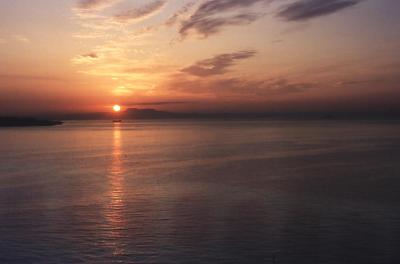EU scheme advances multilateral co-operation in the Mediterranean

ROME – Officials gathered this week to discuss the next phase of a programme that is trying to promote cross border co-operation in the Mediterranean.
Since 2007 the ENPI CBC Mediterranean Sea Basin Programme has been working to promote cooperation between 14 countries on both sides of the Mediterranean. Seven EU countries on the northern shore, and seven partner counties from the southern shore.
Between 2007-2013 the EU invested 200 million euros in the initiative which, so far has co-financed 95 projects. The projects chosen for financing cover four broad goals. They aim to support economic growth and territorial development, enhance cultural heritage and sustainable tourism, develop human capital and promote environmental sustainability.
The project is led by the region of Sardinia and has lasted for three regional governments. The president of Sardinia region, Francesco Pigliaru stated his belief that Sardinia's location makes it an ideal platform for a dialogue between both shores of the Mediterranean. He outlined the fact that the project was based around investment in human capital and the transfer of knowledge and technology. “We need open markets so people and goods can move freely across this closed space,” he said.
The projects launched involve NGOs, local and regional authorities, universities and schools. They seek to address common challenges, improve mobility and promote economic and social development on both sides of the Mediterranean.
A successful example is Lactimed, a 4.35 million euros project that will run from Nov. 2012 to May 2015. Lactimed aims to improve production dairy production chains and promote traditional dairy products in six different countries in the Mediterranean.
Cheesemakers aside, history tells us that Mediterranean cooperation is not easy to achieve. The sea has been subject to conflicts of interest since the ancient Phonecians and Greeks. More recent attempts at establishing international cooperation in the Mediterranean have been limited in their success.
The 1976 Barcelona conference has done little to abate problems of overfishing, tourism and population pressure and pollution in the Mediterranean. The area also poses unique challenges, such as smuggling and immigration and it is difficult to see how the renewed ENI CBC programme will address these over the next four years.
Nehad Abdel Latif, Egyptian ambassador present in the project from its origins in 2007, emphasized that the key to success was in the multilateral nature of the project. “Co-ownership makes it a success. Joint ownership is very important and reflects both sides of the Mediterranean.”
Egypt is currently active in 34 of the 95 projects launched by the ENPI CBC so far. Testament to the project’s multinational nature, much of the programme’s documentation is available in Arabic, which will increase the level of participation among Non EU countries on the southern shore of the Med.
The EU commission have announced that the programme will continue, under a slightly different name (ENPI CBCMED) from 2014 to 2020. It will be financed by the European Neighbourhood Instrument to the tune of 209 million euros, and Sardinia has once again been confirmed as Joint Management Authority. The ENI Mediterranean Sea Basin CBC programme should be approved by the European Commission by the end of 2015.
While the project has so far been modest in its success, it will be interesting to see how it adapts to the important issues in the Mediterranean. Projects such as this are bureaucratic and slow, and so far it has been difficult to adapt the project to the aftermath of the Arab spring and sluggish economic recovery in the region.
The current distribution of funds entails a lengthy process. First a call for proposals is issued, and the proposals are then reviewed by selection committee and finally a joint monetary committee decides where the money will be allocated. “It is a long bureaucratic process, we have to simplify it,” lamented Nehad Abdel Latif.
The success of the project will be measured in the coming years. The presidency of the EU has been held by Greece, Italy and will be held by Malta in 2017, so it is likely that issues in the Mediterranean will continue to have a central role in shaping both EU development programmes and policy.
A helping hand for cheesemakers is one thing, but today, the burning issue is immigration. This was underlined by Francesco Pigliaru who said, “Immigration is a source of knowledge and development. We want to manage it better.” In light of the closure of the Mare Nostrum programme in October due its excessive costs of 109 million euros pa, more will need to be done to ensure that more migrants don't perish off the coast of Italy. Yet it is difficult to see how this programme will help.


